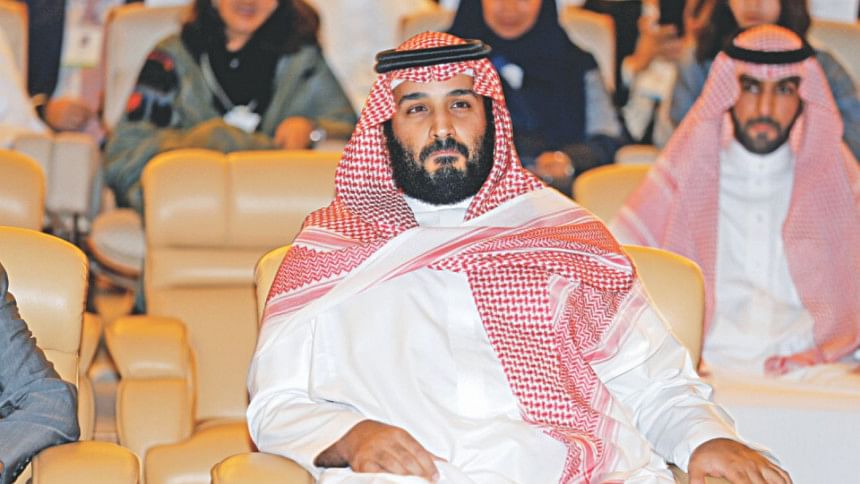What is changing in Saudi Arabia?

ROYAL POLITICS
Saudi Prince Mohammed capped his rapid rise to power in June this year by replacing his elder cousin Prince Mohammed bin Nayef, widely known as MbN, as crown prince.
A source close to King Salman said MbN's dismissal was "in the higher interests of the state" because he was incapacitated by morphine and cocaine addiction, a legacy of an assassination attempt that left shrapnel in his body. Reuters could not independently confirm MbN's addiction issues.
ANTI-CORRUPTION CAMPAIGN
Prince Mohammed tightened his grip on power with the start of the anti-corruption campaign at the weekend, purging the kingdom's political and business elite. Among those arrested were 11 princes.
Many Saudis welcomed the moves as an assault on the endemic theft of public funds by the powerful. US President Donald Trump said those arrested had been "'milking' their country for years" but some Western officials expressed unease about the possible reaction in Riyadh's opaque tribal and royal politics.
YEMEN
Prince Mohammed launched a military campaign in neighbouring Yemen in March 2015. A Saudi-led coalition, acting on an invitation from the internationally-recognised government, has targeted the Iran-aligned Houthi movement in a war which has killed more than 10,000 people.
The war is closely identified with the prince in his role as defence minister. His image once adorned war propaganda but is rarely associated with the war now, although he has said it must continue in order to quash Iranian influence.
QATAR
Prince Mohammed has helped lead a diplomatic campaign to isolate Qatar, saying Riyadh's erstwhile ally backs terrorism and cosies up to Iran. Qatar rejects the accusations and says it is being punished for straying from its neighbours' backing for authoritarian rulers.
The campaign has divided Gulf Arab countries, who Washington regards as essential to its influence in the region. Qatar had incensed Riyadh by cheering Arab Spring uprisings against some autocratic Arab rulers.
CONFRONTATION WITH IRAN
Saudi Arabia's rivalry with Iran, its competitor for influence in the Middle East, has deepened as King Salman and Prince Mohammed worked to build a Sunni coalition against Tehran and its allies in the Arab world.
In May, as deputy crown prince, Prince Mohammed used unusually provocative language to rule out dialogue with revolutionary Shia Muslim theocracy Iran, which he said was trying to interfere in Arab lands and dominate the Muslim world.
On Tuesday, state media quoted him as describing Iran's supply of rockets to militias in Yemen as "direct military aggression" that could be an act of war.
Prince Mohammed has also opened a new front in the proxy war with Iran by threatening Tehran's ally Hezbollah and its home country Lebanon. The resignation on Saturday of the Saudi-allied Lebanese prime minister, Saad al-Hariri, announced from Riyadh, was widely seen as the first act on this new front. The crown prince has also sought the help of Shia leaders in Iraq to try to reverse Iran's dominant role there and shore up security on the kingdom's northern border, and has tried to improve ties with the United States under Trump, who shares his and King Salman's antipathy to Iran's government.

 For all latest news, follow The Daily Star's Google News channel.
For all latest news, follow The Daily Star's Google News channel. 



Comments